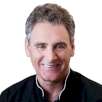Johnny Grasser is a German sports scientist, speaker, motivational coach and consultant. His story is one of extraordinary resilience and unwavering determination. Despite grappling with the most severe form of tetra spastic, he has transcended physical limitations to achieve feats that defy conventional expectations. From conquering Sugarloaf Mountain in Rio de Janeiro in Brazil to representing his nation as a member of the esteemed German national parasurfing team, he epitomises the triumph of the human spirit over adversity. Refusing to cede control to external forces, he champions an ethos of continuous growth, embracing novel challenges and fostering innovative solutions. On 16 May at the launch event for Oral-B’s Disability Champions Award Programme in Amsterdam in the Netherlands, Dental Tribune International spoke with him about his achievements, his mindset and his views on inclusivity in sports and general and oral healthcare.
Do you believe your family’s approach to your disability—their refusal to define it as a primary aspect of your identity—has significantly shaped who you are and your actions?
Yes, I think that I am where I am now because my parents treated me like a normal child. They did not emphasise that I had a disability and never looked at me as a disabled child. Of course, they considered my disability, but tried to do everything they could to enable me to have an independent life. My mother used to ski downhill with me when I was a child, holding me between her legs. So, of course, if you grow up with this image of yourself, it shapes your personality, your motivation and the way you approach your life.
What motivates your passion for sports despite the challenges posed by your disability, and how do you sustain this motivation?
I have always been very passionate about sports. My mother, especially, has a very positive mindset and loves the outdoors and being active. It is a self-motivating process, I think, because, when you train and recognise that you will be better physically after training, it feels better for your body; it becomes enough motivation to go forward.
The difficulty comes when you train and things don’t improve, maybe because you are having a bad day. It is then difficult to stay motivated. For me, it is not that hard now because I understand the reasons why I am training. If I do not train, over time, I will lose the ability to do what I am doing now, and therefore my quality of life will deteriorate. Because I want to live an independent life, this training is a necessity.
As a member of the German national parasurfing team and a participant in various sports, how has your involvement in athletics influenced your approach to living with a disability?
It is my first time as part of a team. Sport is my elixir of life—it means life for me. Without it, I would not be able to move or do anything.
You have emphasised the role of a positive mindset in overcoming obstacles. How has this outlook shaped your approach to both personal challenges and professional endeavours?
As I mentioned, without my parents and my family, I really think my approach to life would have been different. I would have given up many times. It has been really hard to overcome all these obstacles and challenges, so my positive mindset—how I see things, how I think—is definitely the basis for what I do and how I live.
Every difficulty, no matter how great, challenges us as humans, as a society, to solve it, and for me, there are no problems, only challenges.
Could you share your view on the value of specialised oral care for individuals with visible and non-visible disabilities?
Specialised oral care for individuals with disabilities is paramount. It not only addresses their specific needs but also plays a crucial role in fostering self-worth and societal inclusivity. Individuals with disabilities often face societal challenges and can feel rejected or misunderstood. The inability to hold a toothbrush properly because of dexterity issues can exacerbate this sense of exclusion, as it affects their ability to maintain oral hygiene effectively. However, when oral care products are adapted to accommodate their needs, it not only improves their oral health, but also enhances their sense of dignity and inclusion in society.
Moreover, specialised oral care solutions have a broader societal impact. By enabling individuals with disabilities to maintain good oral hygiene, these products contribute to their overall well-being and integration into society. Additionally, innovations in oral care can benefit not only those with disabilities but also ageing individuals who may experience similar dexterity challenges.
I appreciate Oral-B’s slogan “The Big Rethink”, as it encourages reflection and innovation in product development. By reimagining existing oral care solutions, we can address the needs of individuals with disabilities and improve accessibility for all. There is vast potential for enhancing existing products to better serve the diverse needs of consumers, including those with disabilities.
Given your experiences, could you share some challenges you have faced with oral care and how you believe these could be addressed through innovative solutions?
I’ve encountered several challenges with oral care, especially regarding limitations in hand mobility or dexterity. One prominent issue arises when I’m unable to use both hands to brush my teeth, often because of difficulties in standing independently. This limitation makes it challenging to apply toothpaste to the brush effectively.
To tackle this challenge, innovative solutions could focus on redesigning toothbrushes to cater for individuals with restricted hand mobility. For instance, toothbrush designs could incorporate features that stabilise the brush, preventing it from rolling when laid down. This seemingly minor adjustment can significantly enhance the user experience for many individuals facing similar challenges.
To ensure the effectiveness of these solutions, it’s crucial for designers and engineers to consider the unique needs and limitations of users. Collaborating with individuals who have first-hand experience with these challenges can provide invaluable insights and ensure that innovative solutions meet real-world needs effectively.
As a consultant and innovator, what advice would you offer to companies seeking to develop products or services in health and personal care—and particularly in dental care—for individuals with disabilities?
I would advise companies to rigorously test their products with the challenges individuals with disabilities may encounter in mind. This approach is crucial for ensuring success. Additionally, collaborating with people with disabilities can provide invaluable insights, and improvements made for this group can often benefit a wider audience.
In my daily life, I frequently navigate situations that require adaptation. This ongoing need fosters a mindset of creativity and innovation. When embarking on product development, prioritising outcomes that can have a positive impact on a broad range of individuals increases the likelihood of success.
I would love to offer consulting services from the perspective of someone with a disability. This unique viewpoint can offer invaluable insights that may be challenging for companies to grasp without first-hand experience. Encouraging diverse perspectives and fostering collaborative discussions within teams is essential. My input doesn’t dictate the final product, however; the goal is to gather new insights and ideas to drive innovation in a positive direction.
How do you envision the future of accessibility in the sports and healthcare industries? What advancements are you most hopeful about?
I envision the future of accessibility in the sports and healthcare industries as a dynamic intersection where innovation and inclusivity converge. One of the most promising advancements I foresee is the seamless integration of accessibility features into sports technologies and facilities, making them more inclusive for all.
The merging of the healthcare and sports industries at the innovation–inclusivity intersection holds great promise. It would combines clinical expertise with holistic wellness, fostering proactive health management and democratising healthcare access for diverse individuals, promoting lifelong well-being.
I am optimistic that our efforts will be marked by tangible progress, driven by collaboration and a steadfast commitment to inclusivity. Through the transformative power of technology and a reimagining of industry boundaries, we can create a future where everyone, regardless of ability, has equal opportunity to thrive.
Topics:
Tags:
AMSTERDAM, Netherlands: As part of its ongoing mission to make oral care more accessible to everybody, Oral-B has recently launched the Disability ...
A Europe-wide study conducted in 2021 and 2022 and commissioned by Oral-B, a brand of Procter & Gamble (P&G), has shown that 34% of people in Europe...
Seeking to make oral care more inclusive, accessible and positive for people living with disabilities, Oral-B has recently announced a partnership with the ...
Live webinar
Thu. 18 July 2024
8:00 pm EST (New York)
Live webinar
Tue. 6 August 2024
6:00 pm EST (New York)
Live webinar
Tue. 13 August 2024
7:00 pm EST (New York)
Live webinar
Wed. 21 August 2024
9:00 am EST (New York)
Dr. Jim Lai DMD, MSc(Perio), EdD, FRCD(C)
Live webinar
Wed. 28 August 2024
8:00 pm EST (New York)
Live webinar
Mon. 2 September 2024
5:00 am EST (New York)
Live webinar
Tue. 3 September 2024
11:00 am EST (New York)



 Austria / Österreich
Austria / Österreich
 Bosnia and Herzegovina / Босна и Херцеговина
Bosnia and Herzegovina / Босна и Херцеговина
 Bulgaria / България
Bulgaria / България
 Croatia / Hrvatska
Croatia / Hrvatska
 Czech Republic & Slovakia / Česká republika & Slovensko
Czech Republic & Slovakia / Česká republika & Slovensko
 France / France
France / France
 Germany / Deutschland
Germany / Deutschland
 Greece / ΕΛΛΑΔΑ
Greece / ΕΛΛΑΔΑ
 Italy / Italia
Italy / Italia
 Netherlands / Nederland
Netherlands / Nederland
 Nordic / Nordic
Nordic / Nordic
 Poland / Polska
Poland / Polska
 Portugal / Portugal
Portugal / Portugal
 Romania & Moldova / România & Moldova
Romania & Moldova / România & Moldova
 Slovenia / Slovenija
Slovenia / Slovenija
 Serbia & Montenegro / Србија и Црна Гора
Serbia & Montenegro / Србија и Црна Гора
 Spain / España
Spain / España
 Switzerland / Schweiz
Switzerland / Schweiz
 Turkey / Türkiye
Turkey / Türkiye
 UK & Ireland / UK & Ireland
UK & Ireland / UK & Ireland
 Brazil / Brasil
Brazil / Brasil
 Canada / Canada
Canada / Canada
 Latin America / Latinoamérica
Latin America / Latinoamérica
 USA / USA
USA / USA
 China / 中国
China / 中国
 India / भारत गणराज्य
India / भारत गणराज्य
 Japan / 日本
Japan / 日本
 Pakistan / Pākistān
Pakistan / Pākistān
 Vietnam / Việt Nam
Vietnam / Việt Nam
 ASEAN / ASEAN
ASEAN / ASEAN
 Israel / מְדִינַת יִשְׂרָאֵל
Israel / מְדִינַת יִשְׂרָאֵל
 Algeria, Morocco & Tunisia / الجزائر والمغرب وتونس
Algeria, Morocco & Tunisia / الجزائر والمغرب وتونس
 Middle East / Middle East
Middle East / Middle East
:sharpen(level=0):output(format=jpeg)/up/dt/2024/07/Dental-entrepreneurs-should-you-start-your-own-DSO.jpg)
:sharpen(level=0):output(format=jpeg)/up/dt/2024/07/Instagram-helps-researchers-evaluate-patient-satisfaction-with-clear-aligner-therapy.jpg)
:sharpen(level=0):output(format=jpeg)/up/dt/2024/07/Shutterstock_2182470657.jpg)
:sharpen(level=0):output(format=jpeg)/up/dt/2024/07/Study-examines-antibiotic-use-in-implant-dentistry-points-to-a-lack-of-guidelines.jpg)
:sharpen(level=0):output(format=jpeg)/up/dt/2024/07/Article-image_1920x1080px.jpg)








:sharpen(level=0):output(format=png)/up/dt/2023/11/Patent%E2%84%A2-Implants-_-Zircon-Medical.png)
:sharpen(level=0):output(format=png)/up/dt/2014/02/Du%CC%88rr_Dental.png)
:sharpen(level=0):output(format=png)/up/dt/2011/11/ITI-LOGO.png)
:sharpen(level=0):output(format=png)/up/dt/2013/04/Dentsply-Sirona.png)
:sharpen(level=0):output(format=png)/up/dt/2014/02/Planmeca.png)
:sharpen(level=0):output(format=png)/up/dt/2022/01/Sprintray_Logo_2506x700.png)
:sharpen(level=0):output(format=jpeg)/up/dt/2024/06/Johannes-Grasser_1920x1080.jpg)

:sharpen(level=0):output(format=jpeg)/up/dt/2024/07/Dental-entrepreneurs-should-you-start-your-own-DSO.jpg)
:sharpen(level=0):output(format=png)/up/dt/2022/05/IMG_0983-300x300.png)
:sharpen(level=0):output(format=jpeg)/up/dt/2024/05/New-award-programme-from-Oral-B-and-iADH-champions-disability-positive-dental-practices-2.jpg)
:sharpen(level=0):output(format=jpeg)/up/dt/2023/06/230611_Benjamin-Binot.jpg)
:sharpen(level=0):output(format=jpeg)/up/dt/2022/08/Oral-B-and-iADH-to-put-patients-with-disabilities-at-heart-of-their-partnership.jpg)





:sharpen(level=0):output(format=jpeg)/up/dt/2024/07/Dental-entrepreneurs-should-you-start-your-own-DSO.jpg)
:sharpen(level=0):output(format=jpeg)/up/dt/2024/07/Instagram-helps-researchers-evaluate-patient-satisfaction-with-clear-aligner-therapy.jpg)
:sharpen(level=0):output(format=jpeg)/up/dt/2024/07/Shutterstock_2182470657.jpg)
:sharpen(level=0):output(format=jpeg)/wp-content/themes/dt/images/3dprinting-banner.jpg)
:sharpen(level=0):output(format=jpeg)/wp-content/themes/dt/images/aligners-banner.jpg)
:sharpen(level=0):output(format=jpeg)/wp-content/themes/dt/images/covid-banner.jpg)
:sharpen(level=0):output(format=jpeg)/wp-content/themes/dt/images/roots-banner-2024.jpg)
To post a reply please login or register